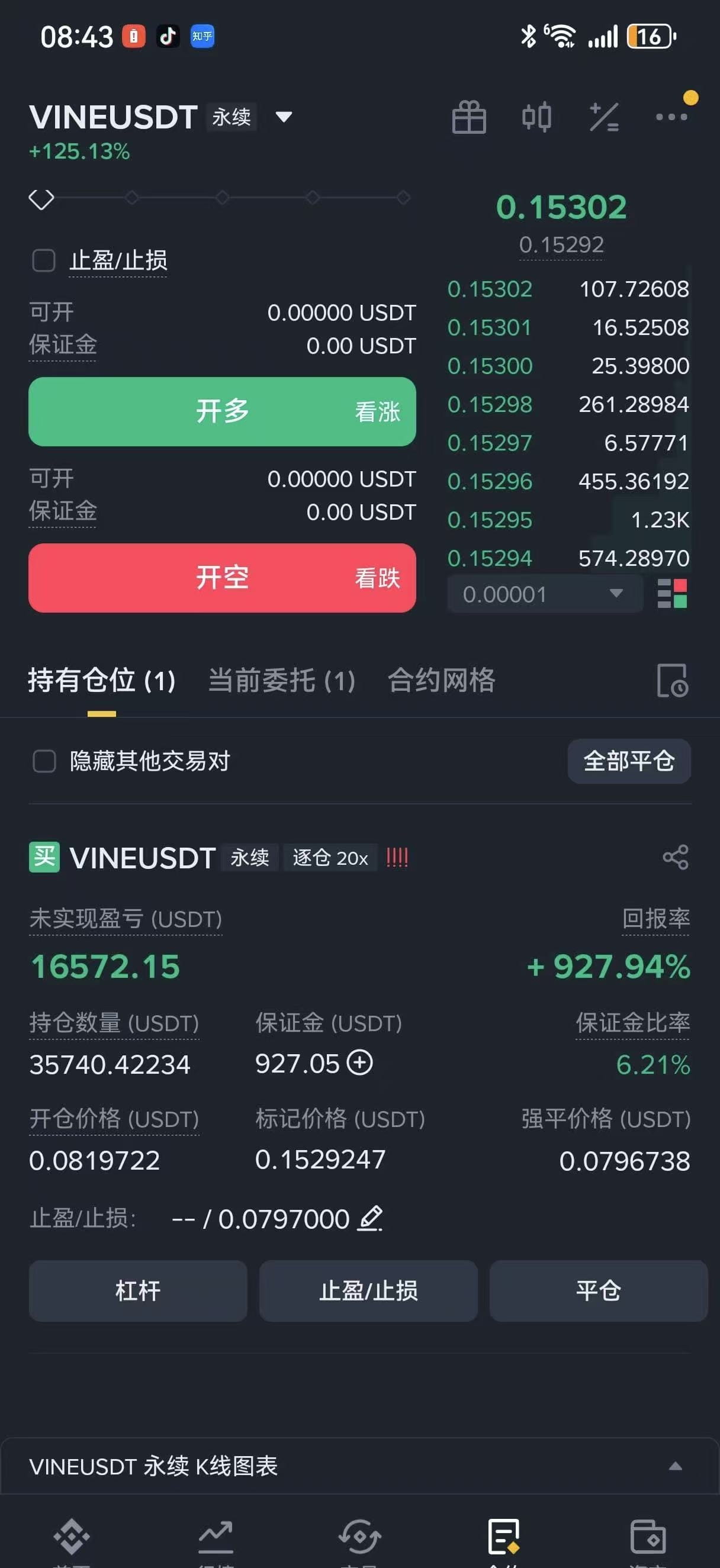
The easiest way to lose a lot of money is 'shorting against the trend.' When a market shifts from a bearish trend to a bullish trend, it is very difficult for people's habitual thinking to change immediately. For example, in the recent wave of Ethereum, many people remained bearish and shorted until they got liquidated. This includes Bitcoin's rise from 25,000 to over 70,000, where countless bloggers and influencers shorted all the way up, eventually facing liquidation and retreating from the market. The anxiety of missing out and the pain of holding against the trend far exceed the losses from a downturn. When the market is down, everyone is losing money, so psychologically, it isn't particularly painful; however, when the market is up and you're losing money, that sense of defeat and pain is doubled. This mindset can lead to stubbornly holding on, and when your mindset collapses, the result is, of course, liquidation.
A friend I knew during the last bull market is a typical case; he shorted Compound all the way from tens of thousands of U to over a hundred thousand U, only to get liquidated and had to return home. So 'shorting against the trend' is one of the harshest ways to lose money in a bull market.
The second way to lose money is called 'chasing highs and cutting losses.' During the bull market in 2021, I had friends who made this mistake. I told him to just buy a coin with his eyes closed, but after going all-in, he panicked and sold at a 30% dip. When the market rose again, he chased back in, then it dropped again, and he cut losses, repeating the cycle of buying high and selling low, ultimately losing everything. Even more ridiculous is that I recommended a worthless coin to him, and despite making 20 times on it, he managed to squander the profits through his own bad trades.
The third pitfall is 'opening high leverage in inappropriate positions.' For example, on July 25 this year, when Trump attended a Bitcoin conference and released a series of positive news, everyone rushed in, only to be met with the German government selling off Bitcoin, the Mentougou compensation incident, the triggering of the Sam rule recession in the US, the risk of US debt default, and so on, leading to a consecutive sharp decline. When the market is constantly fluctuating and people become pessimistic, suddenly there is a violent surge. At this time, many realize that the bull market has arrived, and they use extremely high leverage at high positions, hoping to make a quick profit, only to face a market crash that wipes them out.
Another hidden way to lose money is 'frequent trading.' When a bull market arrives, people's risk appetite increases, dopamine levels surge, and they want to buy and sell with their entire holdings, entering and exiting frequently. Previous calculations show that even trading just once a day can eat away 50% of your principal in fees over the course of a year. In a bull market, many people may trade in and out five or six times a day, not to mention after three months, they could lose at least half of their principal in fees. However, most people do not pay attention to these costs during trading, only realizing the scary fees when it's time to settle the accounts.
The fifth way to lose money is 'heavily investing in junk coins.' In every bull market, there are many 'god coins' and 'demon coins', especially those recommended by big influencers. Many newcomers blindly follow suit, going all-in, only to find that when the other party withdraws their funds, their investment is wiped out with no chance of recovery. Moreover, once the coins you bought don't rise, you become increasingly anxious, leading to frequent trading, chasing highs and cutting losses, ultimately resulting in losing everything.
The last extreme is 'holding onto coins and refusing to move.' While holding valuable long-term coins is correct, taking it too far is counterproductive. If a coin has already risen to a high position, and the trend has peaked, yet you still refuse to sell, the market may turn, and it could drop by over 90%, wiping out all your gains. For example, during the last bull market, Dogecoin fell from 0.7 to 0.05; if you held on stubbornly, you would be holding on to a loss.
As long as you understand these pitfalls and try to avoid falling into them, is it guaranteed that you can make money in a bull market? Actually, it's relatively easy. Of course, you will inevitably step into some of these pitfalls to some extent, but the most important thing is to have a fast error correction ability. If you rely solely on self-exploration, the tuition fees can be quite high, so having a reliable person to guide you becomes very important and can help you avoid many detours.
To summarize, the core to truly making money in a bull market is: you need to have the right investment philosophy, and your values must be stable. Your core must be strong enough to earn that money. Many people have extremely unstable cores; a slight market fluctuation scares them, leading to frequent panic selling and chasing highs, ultimately resulting in losses. You also need to control your desires and avoid using high leverage to gamble on the market; otherwise, it can easily lead to extreme loss.
Another point is to take profits promptly, especially when altcoins rise, it's important to cash out quickly and not be too greedy. The last point is to establish a long-term perspective and buy some truly valuable coins, such as Bitcoin and Ethereum. This is not to suggest that everyone should go all-in, but rather that when an opportunity arises, you need to seize it.